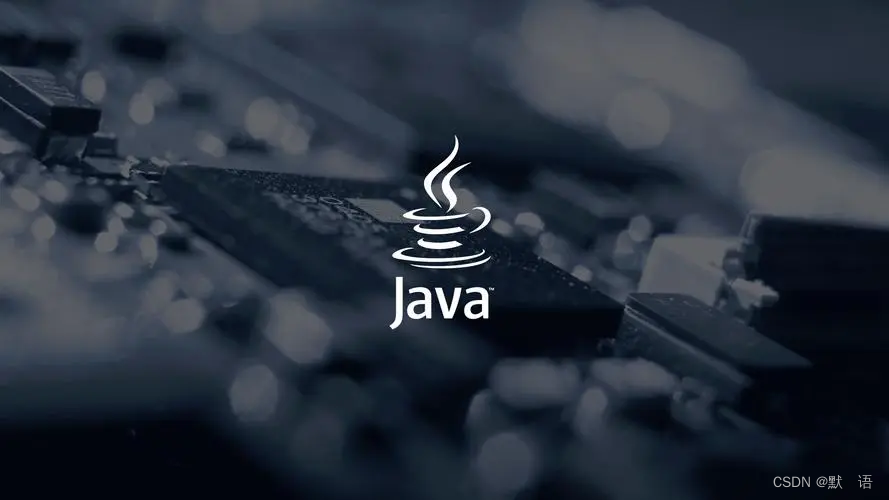解决Java中的“Unchecked cast: java.lang.Object to java.util.List”问题

博主 默语带您 Go to New World.
✍ 个人主页—— 默语 的博客👦🏻
《java 面试题大全》
🍩惟余辈才疏学浅,临摹之作或有不妥之处,还请读者海涵指正。☕🍭
《MYSQL从入门到精通》数据库是开发者必会基础之一~
🪁 吾期望此文有资助于尔,即使粗浅难及深广,亦备添少许微薄之助。苟未尽善尽美,敬请批评指正,以资改进。!💻⌨
🪁🍁 希望本文能够给您带来一定的帮助🌸文章粗浅,敬请批评指正!🍁🐥
当在Java编程中遇到“Unchecked cast: java.lang.Object to java.util.List”问题时,通常是由于代码中存在未经检查的类型转换导致的。这篇博客将会介绍如何解决这个问题,包括问题的背景、引发问题的原因,以及针对不同情况的解决方法。
摘要
本博客将重点讨论在Java中遇到的“Unchecked cast: java.lang.Object to java.util.List”问题,提供了解决这个问题的方法和技巧。
引言
在Java编程过程中,类型转换是一个常见的操作。然而,当进行类型转换时,如果没有进行适当的检查,就可能会在运行时引发异常,特别是在将父类型转换为子类型时。其中一个常见的问题就是“Unchecked cast: java.lang.Object to java.util.List”异常。这个异常表明在将Object类型转换为List类型时存在风险,可能会导致类型不匹配的问题。
问题背景
在Java编程中,经常会遇到需要进行类型转换的情况。然而,当进行类型转换时,如果不进行适当的检查,就可能会导致“Unchecked cast”异常。这种异常通常出现在将java.lang.Object类型强制转换为java.util.List类型时,因为这涉及到将父类型转换为子类型,可能会导致类型不匹配的问题。
可能的原因
- 对象实际类型不匹配: 引发这个异常的一个常见原因是实际存储在
Object类型变量中的对象并不是List类型。这可能是因为之前的操作没有正确地将对象存储为List类型。 - 泛型类型不匹配: 如果涉及到泛型集合,泛型类型不匹配也会导致这个问题。例如,将一个泛型类型为
List<String>的对象强制转换为List<Integer>类型。 - 缺乏类型检查: 在进行类型转换之前,缺乏对对象类型的适当检查,或者直接进行了强制类型转换,可能导致这个异常。
可能的原因
- 对象实际类型不匹配: 引发这个异常的一个常见原因是实际存储在
Object类型变量中的对象并不是List类型。这可能是因为之前的操作没有正确地将对象存储为List类型。 - 泛型类型不匹配: 如果涉及到泛型集合,泛型类型不匹配也会导致这个问题。例如,将一个泛型类型为
List<String>的对象强制转换为List<Integer>类型。 - 缺乏类型检查: 在进行类型转换之前,缺乏对对象类型的适当检查,或者直接进行了强制类型转换,可能导致这个异常。
解决方法
为了解决“Unchecked cast”异常,我们可以采取以下方法:
1. 确认对象的实际类型
在进行类型转换之前,首先使用instanceof关键字检查对象的实际类型是否与所期望的类型相匹配。只有在类型匹配的情况下,才进行类型转换。
Object obj = /* ... */;
if (obj instanceof List) {
List<?> list = (List<?>) obj;
// 现在可以安全地使用list
} else {
// 处理对象不是List的情况
}
2. 使用泛型集合
如果涉及到泛型集合,确保在集合的声明和使用中都使用正确的泛型类型,以避免类型转换异常。
List<String> stringList = new ArrayList<>();
// 添加、操作等
3. 避免使用原始类型
避免使用原始类型,而是使用泛型类来存储和操作数据。这样做有助于编译器进行类型检查,并减少运行时出现类型不匹配的风险。
List<String> stringList = new ArrayList<>();
stringList.add("example");
String value = stringList.get(0); // 泛型类型已经确定,不会引发异常
通过上述方法,我们可以更好地解决“Unchecked cast”异常,从而确保代码的类型安全性和稳定性。在进行类型转换时,始终要考虑对象的实际类型,并合理使用泛型以避免类型不匹配问题。
解决方法
为了解决“Unchecked cast”异常,我们可以采取以下方法:
1. 确认对象的实际类型
在进行类型转换之前,首先使用instanceof关键字检查对象的实际类型是否与所期望的类型相匹配。只有在类型匹配的情况下,才进行类型转换。
Object obj = /* ... */;
if (obj instanceof List) {
List<?> list = (List<?>) obj;
// 现在可以安全地使用list
} else {
// 处理对象不是List的情况
}
2. 使用泛型集合
如果涉及到泛型集合,确保在集合的声明和使用中都使用正确的泛型类型,以避免类型转换异常。
List<String> stringList = new ArrayList<>();
// 添加、操作等
3. 避免使用原始类型
避免使用原始类型,而是使用泛型类来存储和操作数据。这样做有助于编译器进行类型检查,并减少运行时出现类型不匹配的风险。
List<String> stringList = new ArrayList<>();
stringList.add("example");
String value = stringList.get(0); // 泛型类型已经确定,不会引发异常
通过上述方法,我们可以更好地解决“Unchecked cast”异常,从而确保代码的类型安全性和稳定性。在进行类型转换时,始终要考虑对象的实际类型,并合理使用泛型以避免类型不匹配问题。
配置方法
为了解决“Unchecked cast”异常,我们可以采取一些配置方法,以确保类型转换的安全性。
配置步骤
下面是解决这个问题的一般步骤:
当遇到Java中的“Unchecked cast: java.lang.Object to java.util.List”异常时,可以按照以下步骤来解决问题:
1. 理解问题
首先,需要深入了解为什么会出现这个异常。检查引发异常的代码行,并仔细分析是什么导致了类型转换的不匹配。可能的原因包括:
- 对象实际上并不是期望的类型。
- 泛型类型不匹配。
- 缺乏类型检查导致强制类型转换失败。
2. 类型检查
在进行类型转换之前,务必进行适当的类型检查。可以使用instanceof关键字来检查对象是否是期望的类型。例如:
Object obj = /* ... */;
if (obj instanceof List) {
List<?> list = (List<?>) obj;
// 现在可以安全地使用list
} else {
// 处理对象不是List的情况
}
3. 泛型使用
如果涉及到泛型集合,确保在集合的声明和使用中都使用正确的泛型类型,以避免类型转换异常。例如:
List<String> stringList = new ArrayList<>();
// 添加、操作等
4. 避免原始类型
尽量避免使用原始类型,而是使用泛型类来存储和操作数据。这样做有助于编译器进行类型检查,并减少运行时出现类型不匹配的风险。例如,避免这样的代码:
List list = new ArrayList(); // 避免使用原始类型
list.add("example");
String value = (String) list.get(0); // 可能引发类型转换异常
而使用泛型:
List<String> stringList = new ArrayList<>();
stringList.add("example");
String value = stringList.get(0); // 泛型类型已经确定,不会引发异常
通过遵循上述步骤,你可以更好地解决“Unchecked cast”异常,使代码更加稳定和可靠。记住,类型安全性在Java编程中非常重要,因此要始终注意类型转换和泛型的正确使用
代码示例
以下是一个简单的代码示例,展示了如何避免“Unchecked cast”异常:
public class TypeSafeExample {
public static void main(String[] args) {
Object obj = new ArrayList<String>();
if (obj instanceof List) {
List<String> list = (List<String>) obj;
// 现在可以安全地使用list
}
}
}
注意事项
- 在进行类型转换时,一定要确保进行类型检查,避免不安全的强制类型转换。
- 使用泛型集合来存储和操作数据,这有助于在编译时捕获类型不匹配的问题。
- 避免使用原始类型,因为它们不提供类型安全性。
总结
在Java中,遇到“Unchecked cast: java.lang.Object to java.util.List”问题时,我们需要注意进行类型检查、合理使用泛型以及避免原始类型的使用。通过这些方法,可以有效地解决类型转换异常,提高代码的稳定性和可维护性。
参考资料
在解决Java中的类型转换问题时,可以参考以下资料:
- Java官方文档关于泛型和类型转换的说明。
- 在线编程社区中关于类似问题的讨论和解决方案。
如对本文内容有任何疑问、建议或意见,请联系作者,作者将尽力回复并改进📓;(联系微信:Solitudemind )























 1608
1608











 被折叠的 条评论
为什么被折叠?
被折叠的 条评论
为什么被折叠?










